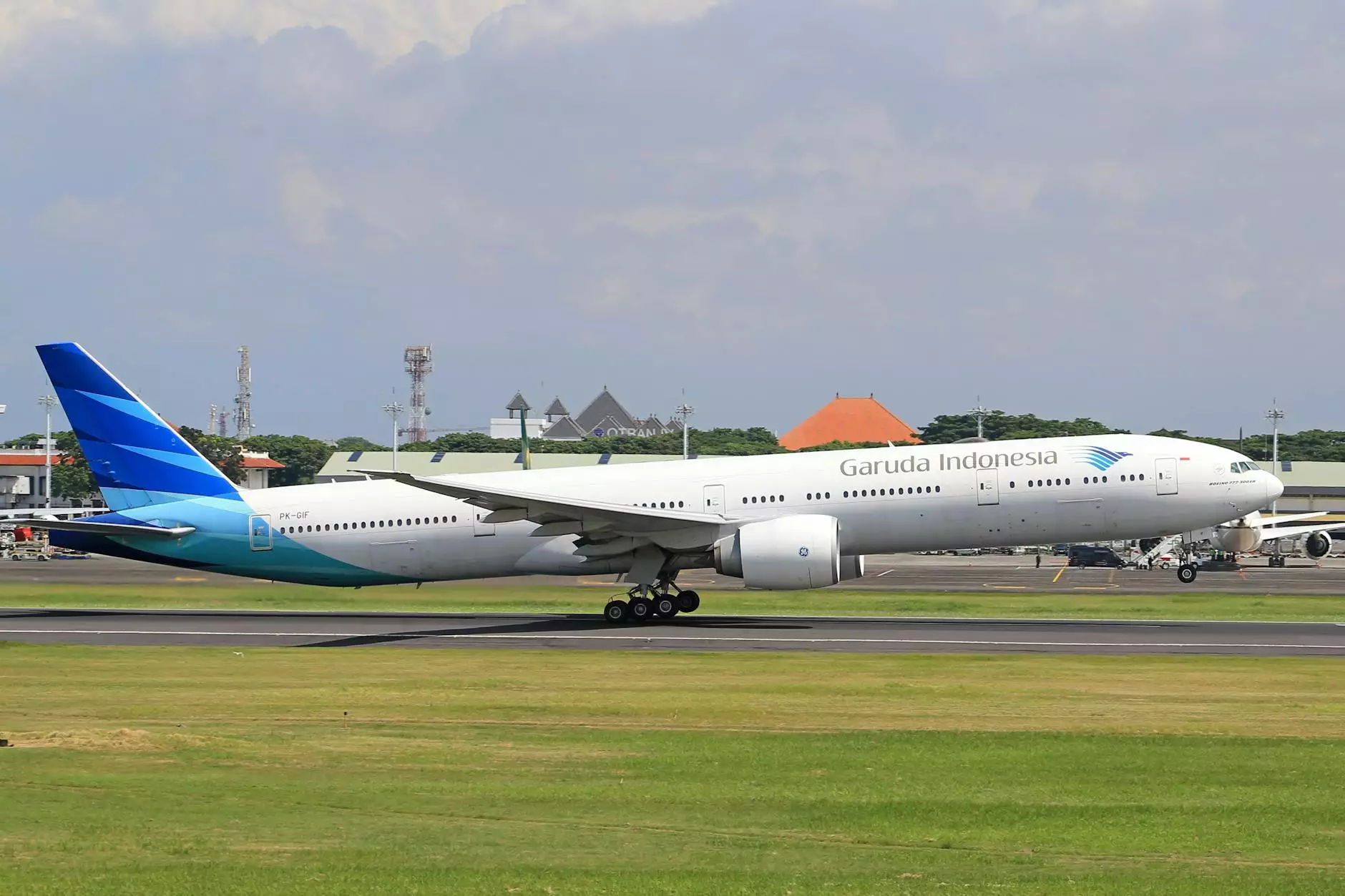Maximizing Your Business with Air Cargo Quotations

In today’s fast-paced business environment, the demand for efficient and reliable shipping solutions is paramount. A critical component of achieving this efficiency lies in understanding air cargo quotations. These quotations not only provide essential cost assessments but also enhance your logistics planning and decision-making processes.
Understanding Air Cargo Quotations
Air cargo quotations are detailed estimates provided by freight forwarders and airlines regarding the costs associated with transporting goods via air. These quotations include various factors such as:
- Weight and Dimensions: The size and weight of your shipment significantly influence pricing.
- Distance: The distance between origin and destination airports plays a crucial role in cost calculations.
- Nature of Goods: Certain products may require special handling or transport conditions, affecting price.
- Insurance: Protection against potential losses or damages during transit may also be included.
- Additional Services: Services such as packing, customs clearance, and documentation may be factored into the quotation.
The Importance of Accurate Air Cargo Quotations
Accurate air cargo quotations are essential for several reasons:
- Budget Planning: They allow businesses to budget for logistics expenses effectively.
- Comparison Shopping: Multiple quotations enable companies to compare rates and services, leading to better decision-making.
- Improved Efficiency: By understanding costs upfront, businesses can streamline their shipping processes, ensuring timely deliveries.
- Risk Management: Understanding all associated costs helps mitigate risks related to unexpected expenses.
How to Obtain Air Cargo Quotations
Acquiring air cargo quotations is a straightforward process, but it requires attention to detail. Here are the steps to obtain accurate quotations:
1. Gather Shipping Information
Begin by gathering essential information about your shipment. This includes:
- Origin and Destination: Specify where the goods are coming from and where they are going.
- Shipment Details: Provide information on the weight, dimensions, and nature of the goods.
- Desired Speed: Indicate how quickly you need the shipment delivered, as this affects pricing.
- Special Requirements: Mention if your shipment requires specific handling or temperature control.
2. Contact Freight Forwarders and Airlines
With your information ready, reach out to various freight forwarders and airlines. It is advisable to contact at least three to five providers for comprehensive comparisons. Ensure to provide them with detailed information regarding your shipment to receive accurate quotations.
3. Evaluate Quotations
Once you receive the quotations, carefully evaluate each one based on not just price, but also services offered. Look for:
- Transit Times: How long will the shipment take?
- Services Included: Are there any additional services that can ease the shipping process?
- Reputation: Research the provider’s reputation for reliability and service quality.
Key Factors That Influence Air Cargo Quotations
'Air cargo quotations' can vary drastically based on several factors. Understanding these can help you make informed decisions about your logistics strategies:
1. Weight and Volume
The greater the weight or volume of your shipment, the higher the cost. Freight forwarders often use a pricing method known as dimensional weight pricing, which considers both the volume and the weight of the cargo.
2. Shipping Routes
Certain routes have established freight lanes that may come with different pricing based on demand and competition. For businesses aiming for international logistics, understanding these routes can lead to significant cost savings.
3. Fuel Prices
Fuel surcharges can significantly impact air cargo quotations. Keep an eye on fuel costs, as fluctuations can lead to immediate changes in shipping rates.
4. Seasonal Demand
Like many industries, demand for air freight fluctuates seasonally. During peak seasons, air cargo quotes may increase due to higher demand, while off-peak seasons may offer lower rates.
The Role of Technology in Air Cargo Quotations
Technological advancements are increasingly shaping how air cargo quotations are generated and processed. Here are some key technological innovations:
1. Online Quotation Tools
Many freight forwarders now offer online tools that allow you to input your shipment details and receive an instant quote. These tools simplify the comparison process and save valuable time.
2. Tracking Technology
Advanced tracking technologies allow businesses to monitor their shipments in real-time. This not only aids in planning but also enhances communication with customers regarding delivery updates.
3. Data Analytics
Data analytics can refine forecasting models and provide insights into shipping patterns. Companies can leverage this data to optimize their logistics and enhance cost-efficiency.
Shipping Centers: The Backbone of Air Cargo
Shipping centers play a vital role in the logistics chain, serving as hubs for cargo consolidation, storage, and distribution. Their efficient management is crucial for smooth air cargo operations. Key features of effective shipping centers include:
- Location: Proximity to major airports and transport infrastructure.
- Technology: Utilization of advanced tracking and management systems.
- Handling Capabilities: Facilities to manage various types of cargo, including perishables and fragile items.
Transportation: Completing the Freight Puzzle
Once air cargo is transported, the next important aspect is ground transportation. Efficient logistics require seamless coordination between air and ground transportation systems, including:
- Trucking Services: Reliable trucking partners who can handle the last-mile delivery.
- Customs Clearance: Specialists who can navigate the complexities of customs regulations to avoid delays.
Airports: Gateways to Global Trade
Airports are critical nodes in the air cargo network. They not only facilitate the physical movement of cargo but also serve as logistics hubs for customs processing and cargo transfer. Important factors regarding airports include:
- Capacity: The ability to handle large volumes of cargo efficiently.
- Infrastructure: Availability of facilities such as cold storage for perishables.
- Customs Operations: Efficiency of customs operations directly affects shipment delays.
Conclusion: Empowering Your Business with Air Cargo Quotations
The importance of air cargo quotations in today’s logistics landscape cannot be understated. By understanding the components, evaluating options, and leveraging technology, businesses can enhance their shipping strategies and reduce costs. From shipping centers to transportation networks and airport operations, every element of the air cargo system plays a role in ensuring your shipments reach their destination efficiently and economically.
For businesses looking to improve their logistical operations, utilizing efficient air cargo quotations is not just beneficial; it is a necessity. Embrace these tools, and watch as your business flourishes in the global marketplace.









